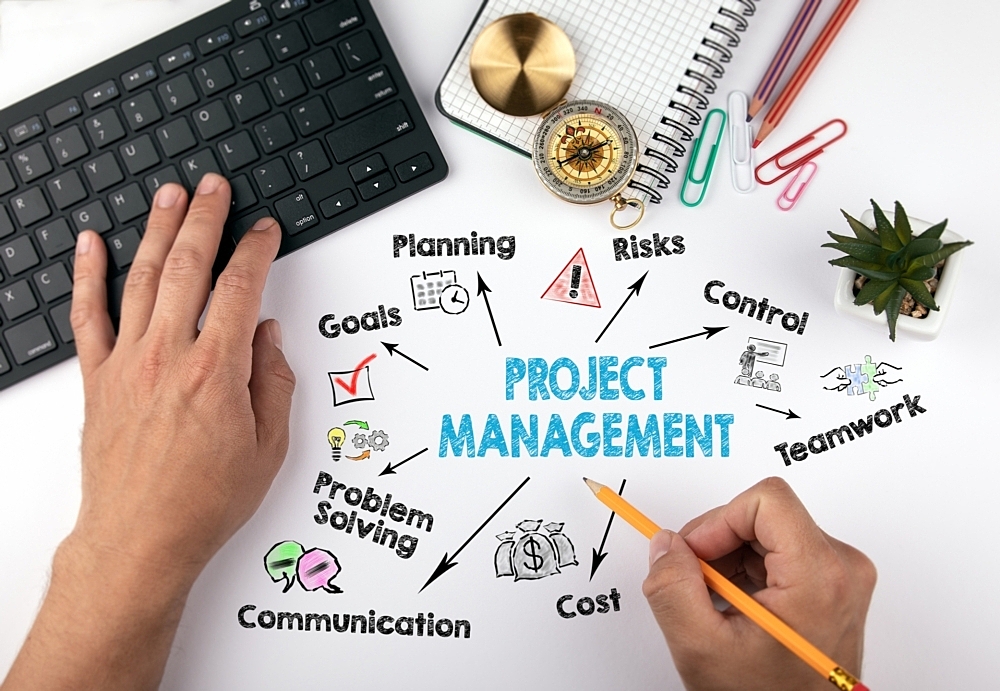The many hats of project managers in B2B marketing
Project managers play a crucial role in facilitating a healthy relationship between client and agency from start to finish.

The relationship between client and agency isn’t just transactional — it’s a complex and evolving exchange of information, products and services that requires strong communication and organization from both parties to succeed.
Every relationship has its own stresses and ups and downs, and the relationship between a client and their chosen marketing agency is no different. Common issues include different interpretations of scope and deliverables, slow communication and budget constraints.
If problems do arise, there is one crucial person (or people) that works with both parties to diagnose the underlying causes and navigate the obstacles: the project manager. Project managers are involved in the relationship from start to finish, from the initial brief right to the final project handover and any ongoing support or maintenance afterwards.
So, what does this process usually look like, and what traits should a project manager have to succeed in their role? We spoke to Lisa Pain, Motum B2B’s very own project manager, to find out.
Partnering with a B2B marketing agency
Each B2B agency offers its own unique strengths and capabilities, but finding the right fit is important for the agency as well as the client.
“Not only do they want us to be the right fit for them, but we also want them to be the right fit for us,” says Pain. “We need to make sure that the client understands our process, how we tackle things, and how we approach a website design and build, et cetera.”
“The first conversations are mostly about us asking questions,” says Steve Lendt, director of engagement and analytics at Motum B2B. “We’re trying to understand their needs as much as possible. Then, they'll look at case studies or materials that would demonstrate our capabilities to them.”
Consulting with each other and listening to each other’s needs is important here, and there are four main considerations that must be evaluated: budget, authority, needs and timeline, or BANT.
“We typically don't approach it in that way, however, because we want the discussion to be a little bit more like a natural conversation,” says Lendt. “We want to help them understand that the relationship will be more than just a deliverable. It’s also the experience of working with us as a partner.”

Project management: The role with many hats
The primary goal for the project manager is to ensure that the promised deliverables make it to the client on time and on budget, but that’s easier said than done. Scheduling, calendar management, budgeting, consulting, progress updates and task assigning are just some of the tasks a project manager is expected to perform.
“In my role, it's almost like I have many customers,” says Pain. “I'm keeping our team on board, pushing through these projects, and at the same time I’m assisting the clients. It can be challenging because you're dealing with so many different people and jumping from one thing to another.”
PMs must be able to proficiently use project management tools and have a solid marketing background with strong organizational and communication skills. There are also some personality traits or “soft skills” that help contribute to their success.
“That’s where having a personable approach really helps,” says Pain. “I'm not the sort of person that would get irritated by someone contacting me. I want to help. I enjoy having a positive relationship with everybody. So, for me, that’s a key point of how I can do well in my job.”
Unexpected hurdles
Sticking to a schedule and budget are no easy tasks, and roadblocks can lead to setbacks and delays. To mitigate these, it’s important to establish clear deadlines and periodic check-ins so that everyone working on a project is aware of what’s going on, as it’s easy to fall behind in the fast-moving marketing world.
“There's always going to be things that we can't predict,” says Pain. “There can be delays, scope creep, a change in budget or someone can add something that we weren't aware of. Being clear from the beginning, trying to understand what the risks are and discussing them in the early phases definitely helps.”
Go with the flow
At the end of the day, the project manager does much more than facilitate a transaction between client and agency. They maintain a delicate relationship, leaving a lasting impression on the client and encouraging long-term partnership.
“Being well-organized, having attention to detail, and practicing clear communication are, to me, the three pillars of great project management,” says Lendt. “Good project management will make a difference in how we do business and grow with a client.”
“Clients come to us for our marketing capabilities, but I think how we handle those projects is a key difference,” adds Pain.